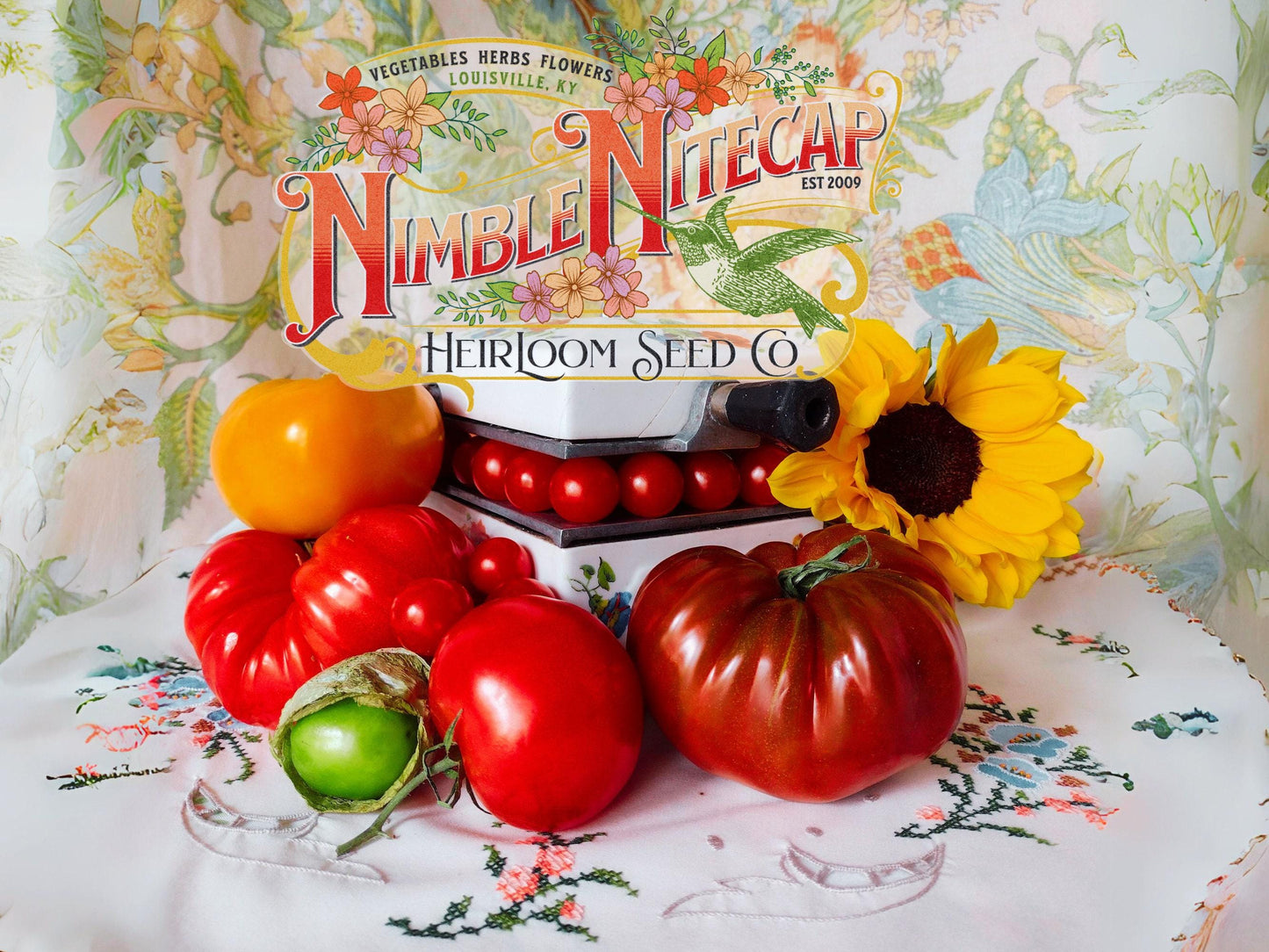Once you’ve tried a Costoluto Genovese tomato you’ll never try anything else! This elegant heirloom has been nurtured for generations by Italian gardeners. Genovese features uniquely lobed, red fruits with vertical ridges etched deeply into the skin.
When sliced, these Tomatoes look like flowers - and the flavor is indescribably delicious. Large fruit are borne on indeterminate vines which will require staking. This splendid variety is easy to find in Italy, but not so in North America.
This Italian heirloom is truly all-purpose. A deeply ribbed exterior harkens back to Tomatoes of old and presents a beautiful scalloped edge when sliced. But don't be fooled by the exterior. The inside has an intense and acidic flavor that is ideal for sandwiches, salads, and, of course, for making sauces or pastes.
Deep red fruits of 'Costoluto Genovese' ripen on indeterminate vines that do well in hot weather while continuing into cooler temperatures late in the season. Good for home gardeners, market growers and chefs. 80 days.
~ planting ~
When to start inside: RECOMMENDED. Start tomatoes indoors 6-8 weeks before the last frost of spring, sowing the seeds in a flat 1/4" deep and 1" apart. Keep the temperature at 70-75 degrees F until germination, as well as providing adequate light in a sunny window or under a grow light; keep the soil moist, but make sure drainage is adequate. When the second set of leaves emerges, transplant the seedlings into individual pots; bury the stems up to the lowest set of leaves to grow strongly rooted plants. A week before planting the seedlings outside, begin exposing them to the weather during the day to harden them; tomatoes cannot endure cold weather, and should not be transplanted outside until all threat of frost has passed. When the soil temperature reaches at least 70 degrees F, plant the seedlings in full sun and very rich soil; once more, bury the entire stem up to the lowest set of leaves. Space the plants 2' apart.
When to sow outside: Recommended for mild winter climates only: 1 to 2 weeks before average last frost and when soil temperatures are at least 60° F.
~ growing ~
Indeterminate tomato varieties often perform best when provided with a trellis or support, since this protects them from various pests and diseases in connection with too much soil contact. Put the supports in place before the seedlings develop vines. As the vines begin to grow, tying them to the support helps their development. Since temperatures below 55 degrees F can damage production, protect the plants if temperatures drop. A thick layer of mulch helps conserve moisture and control weeds. Pruning the "suckers," or shoots that grow between the main stem and the branches, will greatly improve the production and strength of the plant.
~ harvesting ~
Harvest tomatoes when fully colored and firm. About 1 month before the average first fall frost, clip all blossoms and any undersized fruit off the plant. This will steer all the plant’s remaining energy into ripening what’s left. If you have a lot of green tomatoes near the end of the season, and a frost is approaching, pick them and store them indoors in a single layer away from direct sunlight to ripen.

















